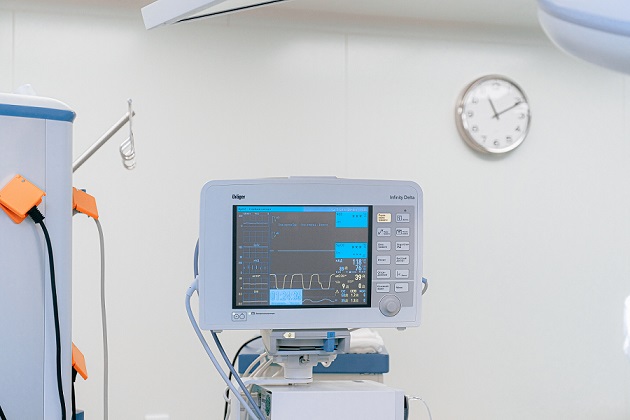Research shows physicians commonly prescribe addictive painkillers after skin surgeries.
A University of Texas Southwestern Medical School research team led by Christian Carr, MPH, recently evaluated the likelihood of an opioid drug being prescribed following skin cancer treatment. The team also analyzed the level of pain severity and how this correlated with patients receiving addictive painkillers. They determined that, post-Mohs micrographic surgery (MMS), many practitioners were routinely prescribing these drugs even though they may not be necessary (i.e., the patients only reported that they experienced mild to moderate pain).
To evaluate prescription opioid use and the level of pain severity that patients voiced, Carr and colleagues performed a retrospective study of more than 2,300 people who had undergone this surgery solely at Texas Southwestern Medical School. They found that just over 300 patients had been prescribed opioids to manage post-op pain and, of these, 190 received hydrocodone-acetaminophen while 116 received tramadol. Moreover, tramadol (an opioid pain reliever) was most often given to patients who were over 74 years old. Tramadol, marketed under the brand name Ultram, is considered a serotonin-norepinephrine reuptake inhibitor (SNRI). It can evoke serious liver complications and drug addiction.

From this data, the team determined that the utilization of “single stage flap, pedicle flap and skin graft compared with linear repair and surgical site on the nose or lip” were significantly correlated with the likelihood that a patient would receive tramadol versus an alternative opioid pain med. At the same time, “secondary intention healing correlated with lower odds of receiving prescription opioids.” Most surprisingly, “surgeries that involved treating multiple lesions on the same day did not correlate with receipt of opioids.” In other words, patients who required treatment in more than one area on the body did not always need addictive meds to manage pain.
“It has been demonstrated that even short courses of opioids may significantly increase addiction risk,” warned Surya A. Veerabagu, BA, and colleagues at the Tulane University School of Medicine in New Orleans. The team performed a separate study analyzing the potential for addiction medications to be prescribed after skin surgery.
Veerabagu and colleges wrote, “Despite evidence that nonopioid analgesics control pain after Mohs micrographic surgery (MMS) and consensus recommendations to reserve opioids as a second-line treatment for post-surgery pain, 15.5% to 58% of patients still receive an opioid prescription after MMS of conventional excisions.”
The New Orleans team conducted a cross-sectional study of insurance database claims. They included a population of 18+ who had MMS from 2009 to 2020. Of the 358,012 patients who underwent MMS, 93,046 (or 26%) had a subsequent opioid insurance claim. Hydrocodone, codeine, oxycodone and tramadol were the most prescribed opioid drugs overall, with “hydrocodone encompassing 47.5% of prescriptions in 2009 and 67.1% of prescriptions in 2011. By 2020 hydrocodone dropped to 45.4% of prescriptions, an overall decrease of 27.1% and a percentage decrease of 30.6% since 2011. Tramadol increased 26.3%, from 1.6% of prescriptions in 2009 to 27.9% of prescriptions in 2020.”
The two studies show that addictive opioid painkillers are being commonly prescribed after MMS, although the New Orleans research team did determine that they are being prescribed at decreasing rates. The teams did not report whether patients who received opioids subsequently developed opioid use disorder (OUD). However, the findings are helpful for ensuring patients who are only experiencing minor pain are only being prescribed nonaddictive medications, (especially if these patients have a pre-established addiction history).
Sources:
Researchers identify factors linked between opioid prescription, skin cancer treatment


Join the conversation!